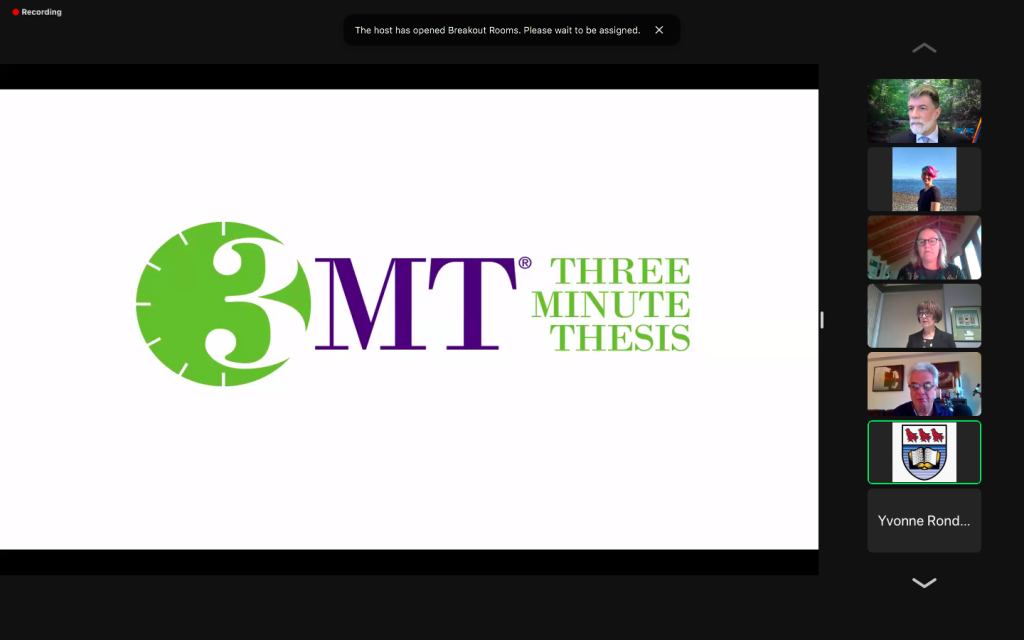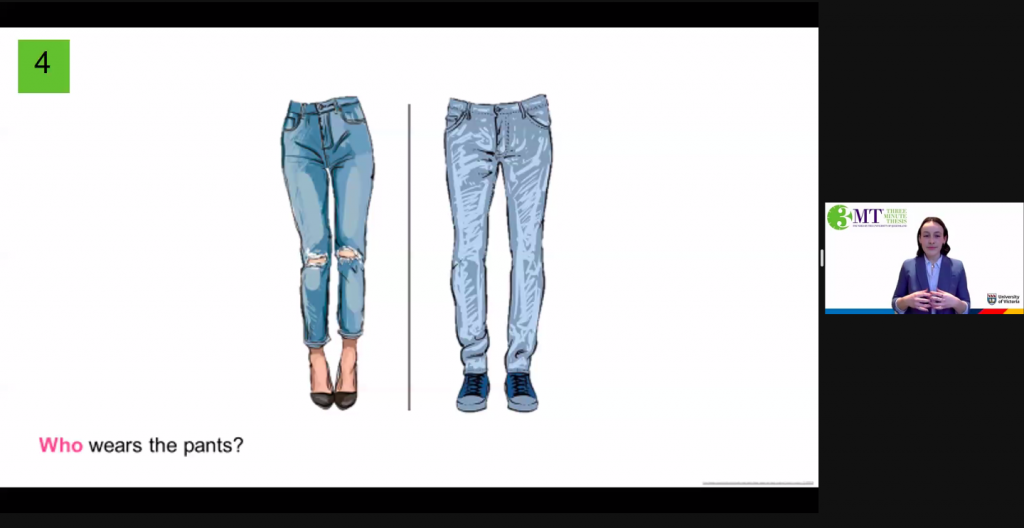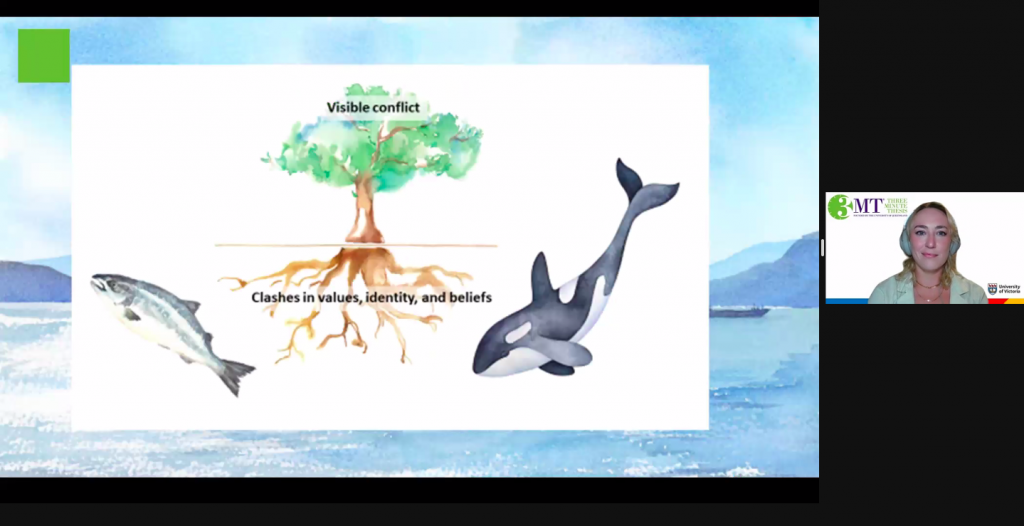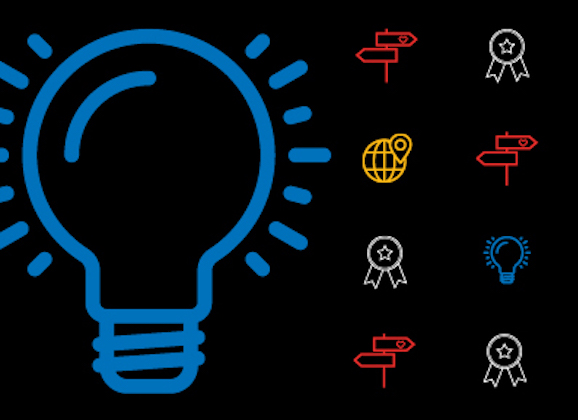A thesis in 3 minutes?
Guest post by Kim Dias
A thesis takes years of work. For master’s students, it’s at least two years; for PhDs, it’s usually five or longer. It’s an intense process and theses are usually thousands of words long. Defences take at least two hours, if not more. In the Three Minute Thesis competition, graduate students have just three minutes to describe their work.
The Three Minute Thesis (3MT) is a competition originally developed by the University of Queensland. Since its launch in 2008, it has spread to over 900 universities across more than 85 countries. In the competition, grad students must describe the work and findings in their thesis in just three minutes, using a single slide.

This year, UVic had six finalists for the competition. Their research ranged from treatment of fetal alcohol exposure to economic inequality in the French revolution. Of these six, the first-place winner would receive $1000 and go on to compete at the Western Regional 3MT. The second-place winner receives $750, and there is also a $300 People’s Choice Award, where the audience votes for their favourite presentation.
I’m a first-year graduate student currently working on her thesis project. I can’t even imagine trying to condense all my work into a three-minute presentation. With every single presentation, I knew there was so much more to the student’s research than they were able to fit into their three minutes. Yet, their research was clear, focused, and easy to understand.
3MT is open to all graduate students across UVic, from fine arts students such as myself to STEM majors. While the research and its impact is obviously important, a lot of the judging seems to focus on the participants’ public speaking abilities.
The winner of this year’s 3MT competition at UVic was Tess Carswell from the department of Mechanical Engineering. Carswell’s research focuses on the disparity between men and women who need lower-limb prosthetics.
All lower limb prosthetics are designed with cisgender men as the basis for the model. If a woman needs a prosthesis, the model is then tailored to her, but it still based on a male model. Carswell’s research has shown that a higher number of female amputees with lower-limb prothetics report more falls, joint disease, and general dissatisfaction with their prosthetics. Carswell’s research hopes to change this.
Carswell also won the People’s Choice Award. The second-place prize went to Erin Grafe from the division of Medical Sciences, whose research focuses on a potential treatment for fetal alcohol spectrum disorder (FASD). Other finalists were Lauren Eckert from the department of Geography, Luke Trinity from the department of Computer Science, Dax Tate from the department of History and Maeve Milligan from the department of Pacific & Asian Studies.
What was most striking to me about this competition wasn’t the speakers’ public speaking skills (though they were all excellent), but rather the depth and variety of really interesting research they were all doing.
As university students, it can be easy to silo ourselves within our department. As a graduate student, I’m now only taking courses within my department. Even as an undergrad, I had no idea what was going on in the engineering side of campus or what research was happening in the humanities.
Attending 3MT reminded me of how much talent we have happening around campus. So many graduate—and undergraduate!—students are involved in amazing, relevant, world-changing research. It’s easy to get caught up in our own work, but if you have a moment, look up and take a glance around. There’s some cool stuff happening.





